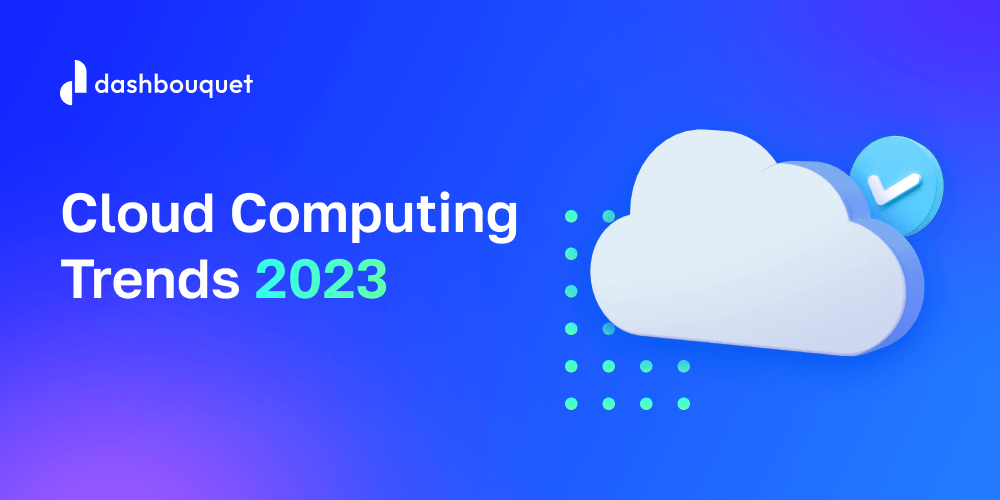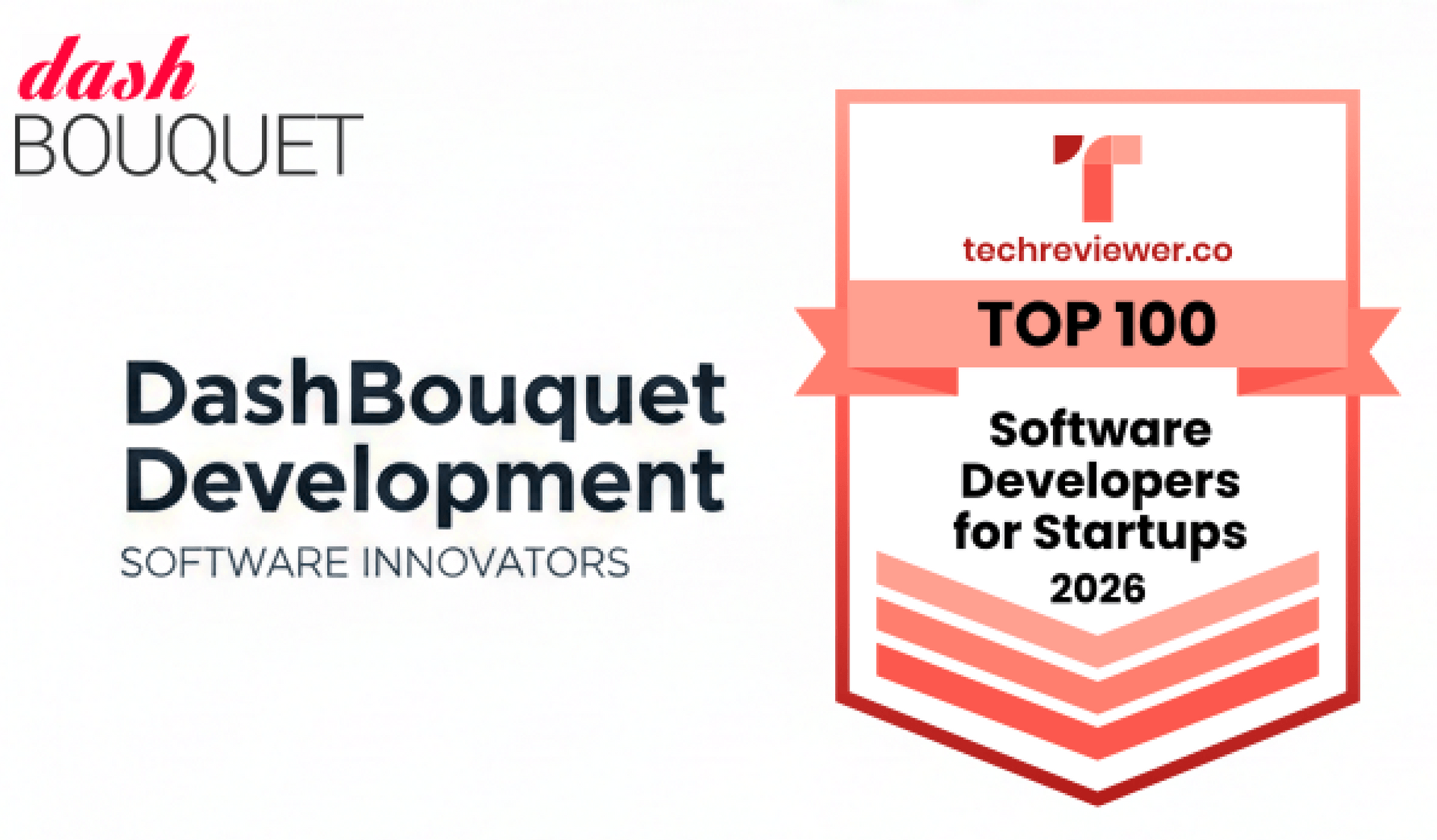Cloud computing is a total game changer for businesses, seriously shaking things up and transforming the way they operate. It offers scalable and flexible solutions that give them the power to completely revolutionize their digital transformation. You know what's cool? The cloud landscape is constantly evolving, introducing new trends and technologies that will completely shape the future of the industry.
According to a survey conducted by Deloitte, 400 executives in the commercial real estate sector were asked about their investment plans in various technologies. In terms of popularity, cloud computing topped blockchain, artificial intelligence, and data analytics in the survey.
In this article, we explore the top cloud computing trends for 2023 that businesses need to be aware of. We’ll also highlight how these trends can be beneficial for our clients in building their digital products with our custom software development expertise. Hybrid cloud architectures, serverless computing, edge computing, and AI integration are all trends that promise to unlock new possibilities and accelerate innovation. Take a look!
1. Hybrid cloud architecture
Hybrid cloud computing architecture has emerged as a prominent trend, enabling companies to leverage the benefits of both public and private clouds. The global hybrid cloud market is expected to grow from $129.43 billion in 2023 to $348.53 billion by 2028, with a compound annual growth rate (CAGR) of 21.91% during the forecast period. According to Flexera, 72% of enterprise respondents indicate they will deploy hybrid clouds in 2023.
Hybrid cloud technology has gained traction across various industries. For instance, in the healthcare sector, hybrid cloud enables secure storage of sensitive patient data in private clouds while facilitating seamless access to critical clinical information through public clouds. Similarly, e-commerce businesses leverage hybrid cloud infrastructure to scale their operations during peak seasons, ensuring efficient handling of large transaction volumes.
As a custom software development company, we can help our clients integrate their existing on-premises infrastructure with public and private clouds. By adopting a hybrid cloud approach, businesses can optimize their operations, achieve scalability, and maintain control over sensitive data. For example, we can help our clients build a robust hybrid cloud infrastructure that enables them to store and process sensitive customer data on their private cloud while utilizing the public cloud for compute-intensive tasks. This hybrid cloud setup provides the perfect balance between security, cost-effectiveness, and flexibility.
When looking at cloud adoption on a broader scale, industry data indicates the dominance of key players in the hybrid cloud market, such as Amazon Web Services (AWS), Microsoft Azure, Google Cloud, IBM, and Oracle.
2. Serverless computing
Serverless computing has gained significant traction in recent years, and its momentum is set to continue into 2023. From 2018 to 2023, the serverless computing market is projected to reach $7.72 billion, growing 28.6% annually.
Taking the burden off of server management, serverless cloud computing offers benefits such as auto-scaling, reduced costs, and increased development speed. The adoption of serverless architecture can simplify maintenance and reduce costs by eliminating the need to purchase and manage hardware components, according to Mordor Intelligence.
Serverless computing is particularly well-suited for applications with fluctuating demand, such as chatbots. These applications often experience unpredictable user requests, making it inefficient to allocate dedicated servers. To address this, Slack utilizes a serverless, cloud-based architecture built on AWS Lambda.
Through our expertise in custom software development, we can help our clients deploy applications without worrying about underlying infrastructure. As an example, we can help clients build serverless apps that scale automatically based on demand, ensuring optimal performance during peak traffic periods while minimizing costs during low traffic times. In this way, businesses can concentrate on their core competencies while we handle infrastructure management.
3. Edge computing
Edge computing brings computing power closer to the data source, reducing latency and enabling real-time processing. IoT devices, along with the need for real-time data analysis, will drive the adoption of edge computing solutions in 2023, an example of leveraging cloud computing. MarketsandMarkets projects the edge computing market will reach $101.3 billion by 2027, growing at 17.8% CAGR.
The adoption of edge computing offers numerous perks for organizations. It enables faster response times, enhances security by keeping sensitive data on-premises, reduces network bandwidth requirements, and enables offline operation in remote or disconnected environments.
IBM found the adoption of edge computing is projected to reach a significant milestone by 2023, with 50% of enterprise data being processed at the edge, compared to only 10% today. In the meantime, Gartner estimates that by 2025, 75% of data processing will occur outside traditional data centers.
As a custom software development company, we can help our clients harness the potential of edge computing by developing applications and solutions that leverage its benefits. We are able to assist in building edge-based monitoring systems for IoT devices, which provide immediate insights and responses. By embracing edge computing, our clients can enhance efficiency, improve response times, and provide a seamless user experience.
4. AI integration in cloud computing
Artificial Intelligence (AI) and machine learning are transforming industries, and their integration with cloud computing apps is set to accelerate in 2023. It is expected that by 2028, cloud AI will register a growth rate of 22.4% worldwide.
Cloud platforms offer the necessary scalability and computational power for AI workloads, enabling businesses to leverage advanced analytics, natural language processing, and predictive modeling. To learn more about the rationale behind AI in cloud computing, read the article by Datacenters.com.
Major tech companies like Amazon and Google have pioneered AI-based platforms such as Amazon Web Services (AWS) and Google Cloud AI Platform. These platforms leverage the power of AI and cloud computing to deliver advanced solutions and services to businesses.
Cloud-based custom software and cloud services enable us to help our clients create intelligent, data-driven digital products. Our services include the development of AI-powered chatbots that deliver tailored customer support, or recommendation systems that deliver tailored product suggestions. AI and machine learning development can help our clients drive innovation, streamline processes, and find new business opportunities through cloud computing.
5. Multi-cloud strategies
As the cloud market expands, organizations are adopting multi-cloud strategies to diversify their infrastructure and avoid vendor lock-in. The driving forces in the market encompass the surge in big data volume, the escalating demand for virtual assistants, and the expanding adoption of cloud-based services and applications. According to HarshiCorp, cost is the biggest factor holding companies back from adopting multi-cloud infrastructure.
As a custom software development company, we can guide our clients in implementing effective multi-cloud strategies to maximize the benefits of different cloud providers. The advantages of using our expertise are that businesses can distribute workloads across multiple cloud platforms, taking advantage of specialized services and avoiding dependency on a single vendor.
We can help our clients design and build cloud-native web applications that seamlessly integrate with various cloud environments, ensuring interoperability and scalability. However, managing and securing data across different cloud platforms can be challenging. To protect our clients' valuable data, we can establish robust governance frameworks and implement appropriate security measures.
6. Containerization and Kubernetes
The use of containers has revolutionized software deployment, enabling applications to run consistently across multiple computing environments. As containerization continues to gain momentum in 2023, Kubernetes will emerge as the de facto orchestration platform.
Verified Market Research reports that the container and Kubernetes Market is expected to grow at a CAGR of 24.74% from 2023 to 2030, reaching $6572.57 million by 2030, compared to its value of $915 million in 2021.
Based on data from Statista, Amazon Web Services (AWS), Microsoft Azure, Google Cloud, and VMware dominate a significant portion of the market for Kubernetes cluster environments in 2022, surpassing other cloud containers providers in the industry.
Dashbouquet is able to assist our clients with adopting containerization and using Kubernetes to build resilient and scalable cloud-native applications. In addition, we can help our customers containerize their applications, so they can be deployed easily across a variety of cloud environments.
Thanks to Kubernetes, the Dashbouquet team can provide efficient management and orchestration of containers, optimizing resource usage and enabling seamless scalability. With company expertise, businesses can leverage containerization and Kubernetes to enhance their application development and deployment processes, enabling faster time-to-market and improved agility.
Final thoughts
Looking ahead to 2023, cloud computing will continue to transform the business landscape, offering new possibilities and opportunities for digital transformation. By embracing the top cloud computing trends discussed in this article, and with our custom software development expertise, our clients can build robust and innovative digital products.
No matter what your company's cloud journey is like, whether it's hybrid cloud architectures, serverless computing, edge computing, integrating artificial intelligence, implementing multi-cloud strategies, or containerizing with Kubernetes, we're here to help. Introducing these trends will not only enable our clients to stay competitive in the digital landscape of 2023, but also ensure scalability, flexibility, and cost optimization.
Have you been searching for a company to hire for cloud computing services? Reach out to Dashbouquet. You can count on our skilled professionals to help you with cloud infrastructure setup, migration, security, or optimization.



